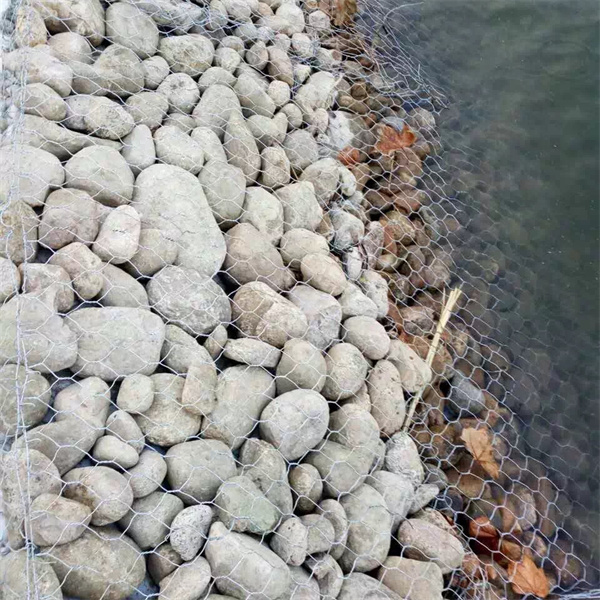دسامبر . 29, 2024 10:58 Back to list
Gabion Product Manufacturing and Supply Solutions for Various Applications
Exploring the Benefits of Gabion Products A Look into the Gabion Products Factory
Gabion products, which consist of steel wire mesh filled with rocks, concrete, or other materials, have gained immense popularity in a range of construction and landscaping applications. From erosion control to aesthetic landscape designs, gabions serve both functional and decorative purposes. Understanding the intricacies of gabion products and their production processes can provide valuable insights into their benefits and practical uses.
The Production Process of Gabion Products
At a gabion products factory, a combination of modern technology and traditional craftsmanship comes into play. The process begins with the selection of high-quality steel wire to ensure durability and resilience in varying environmental conditions. The wire is usually galvanized or coated to resist corrosion, which is crucial since gabions are often used in outdoor settings exposed to moisture.
Once the steel wire is prepared, it is woven into a mesh format. This mesh serves as the framework of the gabion, designed to hold the filling materials securely. Depending on the intended use, the size and thickness of the wire can vary. Standard gabion sizes are typically 1m³, 0.5m³, or customized to client specifications, allowing for flexibility based on project requirements.
Following the crafting of the wire mesh, the gabions are assembled into panels and connected using spirals or binders. This process is crucial as it ensures the stability and strength of the gabion structure. Once assembled, the gabions are ready to be filled with chosen materials, which can range from natural stones to recycled concrete.
Applications of Gabion Products
Gabion products have versatile applications across various fields. In civil engineering, they are often used for constructing retaining walls, riverbank stabilization, and erosion control. The porous nature of gabions allows for proper drainage, minimizing pressure buildup and reducing the risk of collapse in wet conditions. This characteristic makes them an effective solution for managing stormwater runoff and restoring environmental integrity.
gabion products factory

In the realm of landscaping, gabions offer an appealing aesthetic. Landscapers can use them to create attractive garden features, such as seating areas, planters, or decorative walls. By varying the types of filling materials, from smooth river rocks to colorful aggregates, gabions can seamlessly integrate into any landscape design, enhancing the visual appeal of outdoor spaces.
Moreover, gabions are environmentally friendly. They allow for the use of natural materials, which can often be sourced locally, minimizing the carbon footprint associated with transportation. Additionally, their permeability promotes natural vegetation growth and supports local wildlife habitats.
Advantages of Using Gabion Products
The advantages of utilizing gabion products are numerous. One of their most significant benefits is their cost-effectiveness. Gabions require less labor and material compared to traditional building methods, making them an affordable option for many construction projects. Furthermore, their longevity and durability mean reduced maintenance costs in the long run.
Another advantage is their adaptability to various terrains and climates. Gabions can be effectively deployed in areas prone to flooding, landslides, or soil erosion without the need for complex engineering solutions. Their flexibility allows them to conform to the local landscape, minimizing disruption during installation.
Moreover, gabions contribute to sustainable practices. The use of natural stones and local materials reduces the environmental impact, while their ability to promote water drainage and vegetation makes them a friendlier alternative to concrete structures.
Conclusion
In summary, gabion products represent a perfect blend of functionality, durability, and aesthetic appeal. From their intricate production processes in gabion products factories to their widespread applications in civil engineering and landscaping, gabions are a practical choice for a myriad of projects. Their advantages, including cost-effectiveness, environmental sustainability, and versatility, make them an enduring solution in modern construction and landscape design. As we look to the future, the popularity of gabion products is likely to grow, driven by the increasing demand for sustainable building practices and innovative design solutions in our ever-evolving environment.
-
hesco-gabion-baskets-for-coastal-erosion-prevention
NewsAug.22,2025
-
longevity-and-durability-of-river-rock-gabion-walls
NewsAug.22,2025
-
how-to-integrate-gabion-3d-walls-in-urban-planning
NewsAug.22,2025
-
reno-mattress-gabion-applications-in-civil-engineering
NewsAug.22,2025
-
how-to-install-wire-mesh-for-gabion-baskets-properly
NewsAug.22,2025
-
best-materials-for-filling-a-chain-link-gabion
NewsAug.22,2025
-
Wire Mesh Thickness Impact on Gabion Wall Load Bearing
NewsAug.12,2025






